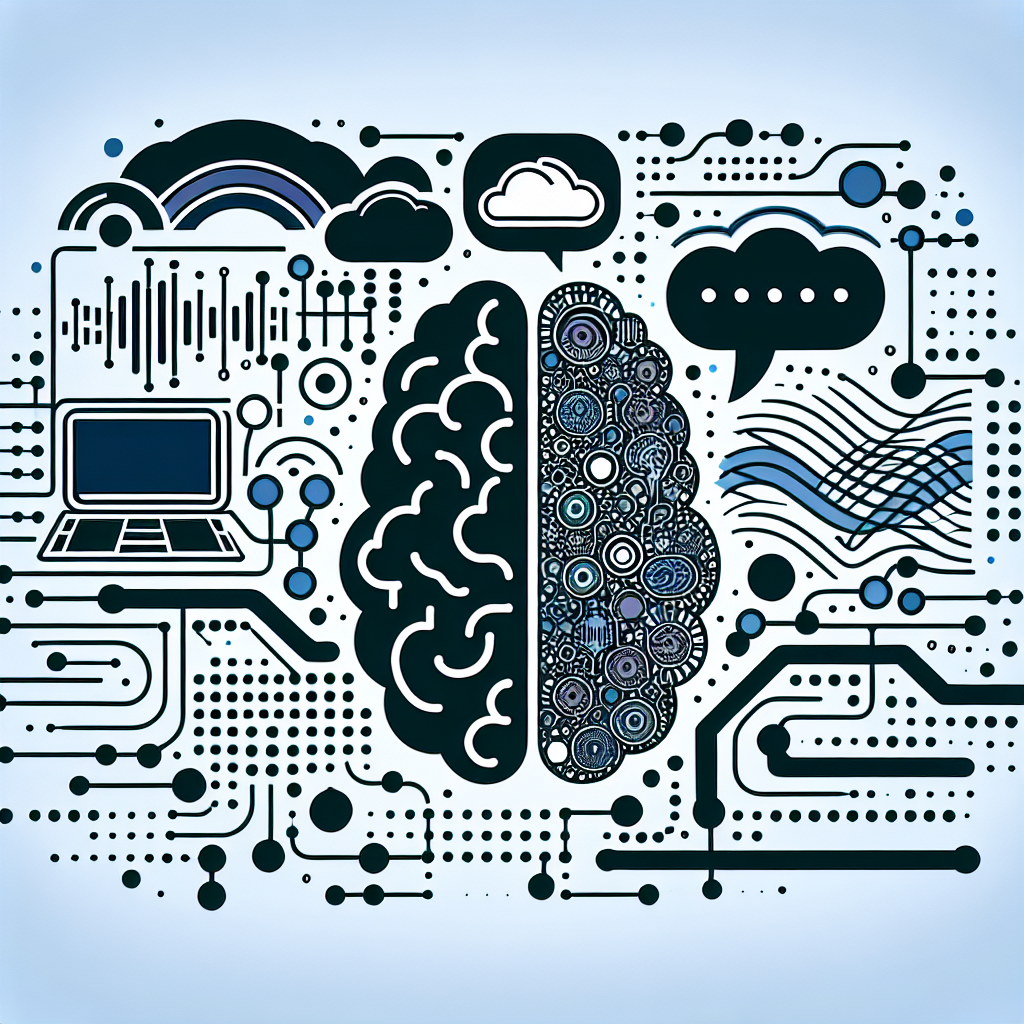In recent years, artificial intelligence (AI) platforms and natural language processing (NLP) have become increasingly popular and powerful tools for businesses looking to streamline their operations, improve customer service, and gain insights from large amounts of data. These technologies have the potential to revolutionize how we interact with computers and machines, making them more intuitive and user-friendly. In this article, we will explore the role of AI platforms and NLP in today’s business world, and how they are shaping the future of technology.
AI Platforms:
AI platforms are software frameworks that enable businesses to build, deploy, and manage AI models and applications. These platforms provide a set of tools and services that make it easier for developers to create and train AI models, as well as integrate them into existing systems. Some popular AI platforms include Google Cloud AI, Microsoft Azure AI, and IBM Watson.
One of the key benefits of using AI platforms is their ability to automate repetitive tasks and processes, freeing up human workers to focus on more strategic and creative tasks. For example, AI platforms can analyze large datasets to uncover patterns and insights that would be difficult or time-consuming for humans to find. This can help businesses make more informed decisions and improve their operations.
Another advantage of AI platforms is their ability to scale and adapt to changing business needs. As businesses grow and evolve, they can easily update and expand their AI models and applications to meet new requirements. This flexibility is especially important in today’s fast-paced business environment, where companies need to be agile and responsive to market changes.
Finally, AI platforms can help businesses improve their customer service and engagement. By using AI-powered chatbots and virtual assistants, companies can provide 24/7 support to their customers, answer common questions, and even recommend products or services based on customer preferences. This can lead to higher customer satisfaction and loyalty, as well as increased sales and revenue.
Natural Language Processing:
NLP is a branch of AI that focuses on the interaction between computers and human language. It allows machines to understand, interpret, and generate human language, enabling them to communicate with users in a more natural and intuitive way. NLP is used in a wide range of applications, including chatbots, virtual assistants, sentiment analysis, and machine translation.
One of the key challenges in NLP is the ambiguity and complexity of human language. Words and phrases can have multiple meanings depending on context, making it difficult for machines to accurately interpret and respond to user inputs. However, recent advances in deep learning and neural networks have made significant progress in improving the accuracy and performance of NLP systems.
One of the most common applications of NLP is chatbots, which are AI-powered virtual assistants that can hold conversations with users in natural language. Chatbots can be used for a variety of purposes, such as customer support, sales, and marketing. They can help businesses automate routine tasks, provide instant responses to customer inquiries, and even personalize interactions based on user preferences.
Another important application of NLP is sentiment analysis, which involves analyzing text data to determine the emotional tone or sentiment of a piece of content. This can be useful for businesses looking to understand customer feedback, monitor social media conversations, or assess the effectiveness of their marketing campaigns. By using NLP techniques, companies can quickly identify trends and patterns in large volumes of text data, and make data-driven decisions based on these insights.
FAQs:
Q: What are some common use cases for AI platforms and NLP in businesses?
A: Some common use cases for AI platforms and NLP in businesses include customer service chatbots, sentiment analysis for social media monitoring, personalized marketing campaigns, and predictive analytics for sales forecasting.
Q: How can businesses benefit from using AI platforms and NLP?
A: Businesses can benefit from using AI platforms and NLP by automating repetitive tasks, improving customer service, gaining insights from data, and enhancing decision-making processes.
Q: What are some challenges and limitations of AI platforms and NLP?
A: Some challenges and limitations of AI platforms and NLP include the need for large amounts of training data, the potential for bias in AI models, and the difficulty of accurately interpreting human language.
Q: How can businesses get started with AI platforms and NLP?
A: Businesses can get started with AI platforms and NLP by identifying their specific use cases and goals, selecting the right AI platform for their needs, and working with AI experts to develop and deploy AI models and applications.
In conclusion, AI platforms and NLP are powerful technologies that are transforming the way businesses operate and interact with their customers. By leveraging these tools, companies can improve efficiency, enhance customer service, and gain valuable insights from data. As AI continues to evolve and become more sophisticated, we can expect to see even more innovative applications and opportunities for businesses to harness the power of AI and NLP.

